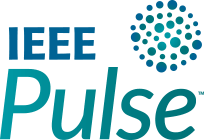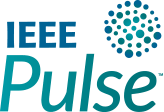Why hesitate to be a part of the IEEE EMBS Student Mentoring Program? “A wonderful experience” is the right phrase to describe the program in 2022 from IEEE EMBS
In order to align with the original goals of the IEEE organization’s IEEE Mentoring Meeting, the IEEE EMBS Student Activities Committee (IEEE EMBS SAC) is now shaping the Student Mentoring Program (SMP) for EMBS members. The SMP, a student-led initiative by the Student Activities Committee (SAC), is an annual series of events that aim to offer a support network for students to connect with experienced professionals that align with their interests all over the world [1], [2]. The program is a part of the Professional Development Portfolio along with other programs under IEEE EMBS SAC [3], [4]. It is aimed at promoting the skills and professional development of students and young professionals in the IEEE EMB Society. Matching the mentee(s) and a mentor based on the same area of research interest (AOI) for reaching their goals is the main significance of the program. This article will explain the experience and achievements from both sides of being a mentor and a mentee in SMP 2022.
Meet the mentor
Dr. Nyi Nyi Tun, IEEE EMBS Student Mentoring Program 2022
In addition to being the chairman of the SMP 2022, I am fond of sharing and making contributions to the youth, especially in the academic field. The IEEE EMBS SMP is a paradise to find such an opportunity for sharing knowledge and experiences with the students. When I finished my Ph.D. studies with a BME background, I decided to be a professional teacher who would be able to contribute to BME fields. The IEEE Engineering in Medicine and Biology Society became my priority society in the IEEE organization. I found the IEEE EMBS SMP on the EMBS social media platform and the IEEE EMBS website (https://www.embs.org) and then I participated not only as a mentee but also as an ambassador in the first edition of the year 2021. That time, my mentor was Prof. Dr. Heba A. Shaban from the Arab Academy for Science, Technology, and Maritime Transport (AASTMT) in Egypt. After graduation, as my hobby is teaching and lifelong learning, I participated as a mentor in SMP 2022, along with taking on the role of chairman.
I matched with one mentee from Indonesia who shared the same interests in the area of BME, and mentored him through the guidelines of the program. We met twice per month, with one and a half hours of meeting duration. I guided the mentee based on his research interests and targets for the program’s six-month duration. Together with the other mentees, I hoped my mentee would become a smart and qualified mentee by grasping his goals at the end of the program. I shared knowledge and experiences about doing research in academic life, and I well mentored him to be a skilled BME student for society.
Within the mentoring duration, we learned from each other, and we both learned and discussed new things. Teaching is a kind of continued learning. I had good experiences with the SMP 2022 as a mentor. Furthermore, we both set the roadmap in terms of partnership for our future research collaboration in the long run, which was one of the main original objectives of the program. The mentee followed my suggestions, and he systematically wrote a meeting report, which is submitted to me for a twice-monthly meeting (Figure 1). This habit led him to be systematic in his academic life, and finally, he accomplished nearly 95% of the goals in the SMP 2022. In addition, he became a volunteer for the society and a resource for the IEEE EMBS SAC.

Figure 1 : Mentor–mentee monthly meeting: mentor Dr. Nyi Nyi Tun (left) and mentee Muhammad Fairuziko Nurrajab (right). (Photo courtesy of Dr. Nyi Nyi Tun.)
Meet the mentee
Muhammad Fairuziko Nurrajab, IEEE EMBS Student Mentoring Program 2022
I am Muhammad Fairuziko Nurrajab, a recent graduate of BME from Indonesia, and I am currently doing an internship at a vaccine manufacturing company. During my undergraduate education, I lacked exposure to issues related to BME on an international scale. I did not join any international organizations at the time, and I had no idea how to get a job in the BME field internationally or in academia.
In my third year at university, I found information about the SMP from the SAC of IEEE EMBS. The selection of the mentoring program was simple, with a submission of personal information and an interview to learn more about the participant’s career goals [1]. At that time, I explained that I wanted to learn more about electroencephalography (EEG) and neuroscience in practice, since both were lacking at my university. I was paired with my mentor, Dr. Nyi Nyi Tun. He is an amazing person who graduated from Kyushu University, Japan, with a research background in mechatronics and BME. Because of this, I felt happy to learn from an expert in the field I want to work in.
In case you are uncertain about selecting the appropriate mentor, the mentoring program is designed to accommodate the interests of both mentors and mentees, taking into account factors such as gender, area of expertise, and other preferences [2]. Each mentor-mentee pair is also assigned an ambassador who will monitor your mentoring progress and assist with technical issues.
In the first and second meetings of the mentoring, I discussed the goals I wanted to achieve during the mentoring. In the short term, I wanted to know how to analyze and process EEG signals from open-source datasets. Then, I also wanted to gain insight into how to write and publish papers in international journals. I believe that knowing these two things was crucial, particularly since I was still an undergrad and had little research or publication experience in the scientific literature.
In addition, I had a desire to improve my confidence in English by joining an international organization. It just so happened that Dr. Nyi, my mentor, was part of the IEEE EMBS SAC. Therefore, I was recommended to join. Until now, I am still a part of the IEEE EMBS SAC as a volunteer in the administrative portfolio. Based on my experience, I feel that the role of a mentee is not only to learn about technical matters, research, or careers in the industry but also to get facilities to develop soft skills.
After six months of mentoring, I achieved several things that I found amazing. I completed the online course Medical Neuroscience and Introduction to Statistics recommended by my mentor with excellent grades. Then, I managed to process simple EEG data using EEGLab software in MATLAB. In addition, I managed to qualify for a research exchange at the University of Tsukuba in Japan with Dr. Nyi’s help in reviewing and evaluating my research proposal.
In this mentoring program, each mentee has different targets. Some of my friends have targets to publish scientific articles, while others discuss their careers. Therefore, don’t be afraid to join mentoring just because your target may not be as great as other participants.
Many mentors and mentees continue to work together and have positive relationships after mentoring ends. With both parties’ consent, this can be done. For instance, I still frequently seek career guidance from my mentor. I’m now working with my mentor on a research project that we are aiming to present at an international conference.
After joining the mentoring program in 2022, I rejoined the IEEE EMBS SMP as an ambassador in 2023. As an ambassador, I gained a lot of experience in communicating professionally with mentees and mentors and learned how to help coordinate an activity. I also had further opportunities to discuss with mentors and mentees who share the same interests as me. These benefits, in my opinion, are exceptional and hard to find elsewhere. Even some people I know managed to get hired because of their connections in IEEE EMBS.
I can tell those of you who are students that the IEEE EMBS Student Mentorship Program is the best location for you to develop. You can direct the mentoring process according to your needs by using an organized schedule and adaptable coaching methods. You can speak with your mentor if you’re still unclear about your future. Thus, remember to sign up for the upcoming student mentorship program!
In summary, the IEEE EMBS SMP helped me get to know more about my interests and also helped me develop the skills needed. Moreover, I felt closer to the international community, which shared the same background as me, which made me more confident. The closer you are to your mentor and follow his suggestions, the easier it is to grasp your goals.
I recommend all interested EMBS members, both mentees and mentors, contact sac@embs.org to learn more about the SMP and find out how you can get involved. Through the program, we can develop community and collaborate with each other in the fields of engineering, medicine, and biology. Dreams do come true with the IEEE EMBS SMP.
References
- N. N. Tun and B. Aleman, “Fostering future professionals: A review of the IEEE EMBS student mentoring program,” IEEE Pulse, vol. 14, no. 2, pp. 29–34, Mar./Apr. 2023, doi: 10.1109/MPULS.2023.3269783.
- N. N. Tun, B. Aleman, and S. Huacre, “From mentorship to success: A tapestry of experiences in the IEEE EMBS student mentoring program,” IEEE Pulse, vol. 14, no. 3, pp. 31–33, May/Jun. 2023, doi: 10.1109/MPULS.2023.3294104.
- B. Aleman, “Empowering student leaders: The new initiative to establish regional student activities committees and student regional representatives in the IEEE EMBS,” IEEE Pulse, vol. 14, no. 2, pp. 35–36, Mar./Apr. 2023, doi: 10.1109/MPULS.2023.3269760.
- A. L. Cakici, B. Aleman, and E. Grooby, “IEEE EMBS International Student Conferences—Insights from 2022 editions,” IEEE Pulse, vol. 13, no. 6, pp. 29–32, Nov./Dec. 2022, doi: 10.1109/MPULS.2022.3227855.
- Muhammad Fairuziko Nurrajab received the degree in biomedical engineering from the Bandung Institute of Technology, Bandung, Indonesia. He is currently an intern at a vaccine manufacturer in Indonesia and will soon join a doctoral program in Japan in 2024. With this passion, he would like to join more international communities in the field of human therapeutics. His main research interests include developing therapeutic technologies for the human nervous system.
- Nyi Nyi Tun received the Ph.D. degree in information science from Kyushu University, Fukuoka, Japan, in March 2022. He is currently working as a postdoctoral researcher with Kyushu University. He is now researching biomedical and neural circuits in fusion with mechatronics engineering. With a passion for volunteering, he is dedicated to contributing to society and collaborating with students and professionals globally.



